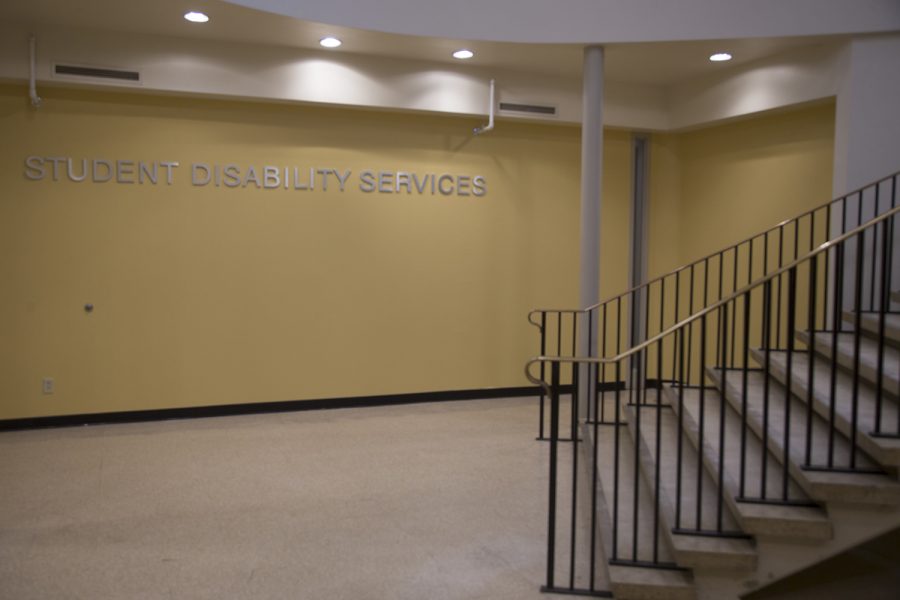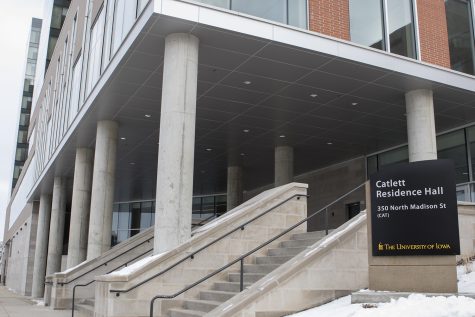Opinion: The correct terminology around disabilities matters
It may feel like tedious political correctness, but knowing the correct words to use makes all the difference.
The outside of the UI Student Disability Services office is seen on Wednesday, June 5, 2019. The office is located in the basement of Burge Hall.
October 24, 2019
Is it “people with disabilities” or “disabled people”? To someone without a disability, these may sound exactly the same. To people who have disabilities, your choice of wording makes all the difference in the world.
Kenzie Anthony and Tanna Quisley, Iowa City residents with disabilities, prefer to be referred to as people with disabilities. This is known as person-first language.
“Disabled sounds like there is something wrong with us. Disabled sounds like we cannot do anything. ‘Person with a disability’ sounds less like you are labeling that person,” Anthony said.
How often do we even need to mention the disability when referring to someone who has one? Anthony and Quisley both said people without disabilities should use person-first language as a way to show respect. They also said, ideally, they should just be called by their names.
There are communities out there, such as the autism and deaf communities, who generally prefer identity-first language. This means putting the disability in front of the word “person.”
Identity-first language replaces “disabled,” which can be viewed as as a demeaning term.
Stacey McElroy-Heltzel, a psychologist for University of Iowa Counseling Services who works with students who have disabilities, said she was trained to use person-first language because it humanizes the individual. She also said caution must accompany it, as not all people with disabilities prefer it.
Not everyone with a disability feels this way about person-first language. Karina Foster-Middleton, a disabled UI student, prefers identity-first language.
She added that replacing disabled with another word that describes an identity the person is part of is better. We do not need to mention the disability if it does not fit into the context. It would not fit into the context to say a person who is gay went to the grocery store, so why do we need to say someone with a disability went to the store?
McElroy-Heltzel and Foster-Middleton also mentioned the campus and online resources which can teach someone more about correct disability terminology. This is great, but chances are only asking will let you know how the individual person with a disability wants to be referenced.
It’s important to note that not all people with conditions are disabled in every aspect of life. For example, someone with a learning disability might be disabled in an academic setting but not in an athletic one.
So, how do we know what terminology to use when everyone has a different opinion on it? All four people interviewed have a solution: Just ask the person.
They also agreed proper terminology makes people with disabilities feel welcomed, included, cared about, and respected. In order to make students at the UI and Iowa City residents with disabilities feel like this, members of the community must educate themselves about terminology.
It’s not about getting one politically correct term. As McElroy-Heltzel pointed out, using preferred terminology should come out of kindness and not of wanting to be politically correct. It is about getting people to understand why they should be careful with how they refer to the disability community.
It is about society realizing disability does not define or dehumanize someone and is nothing to be embarrassed about.


















